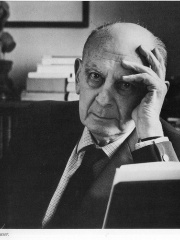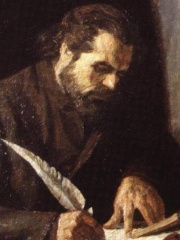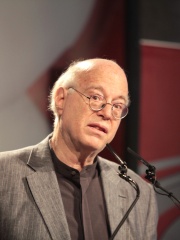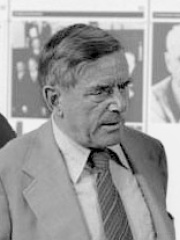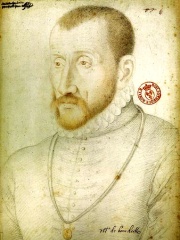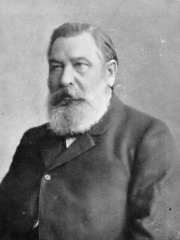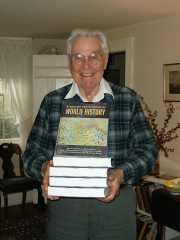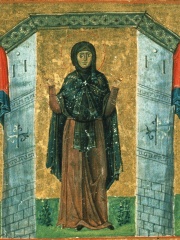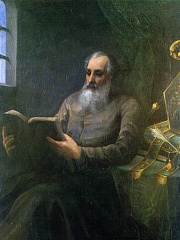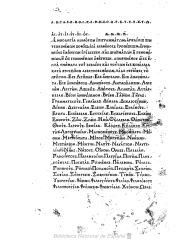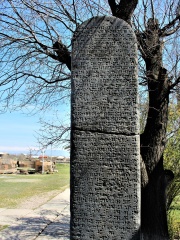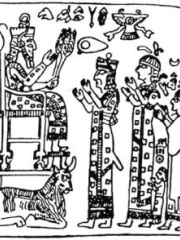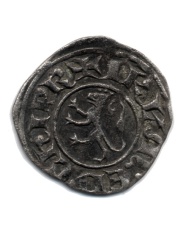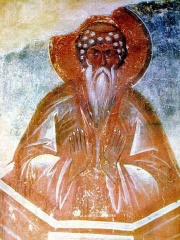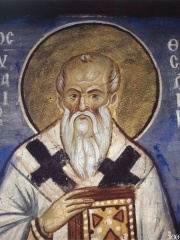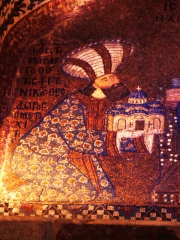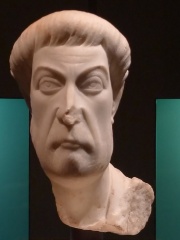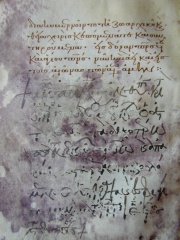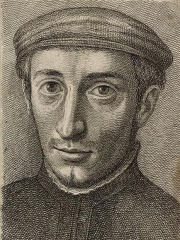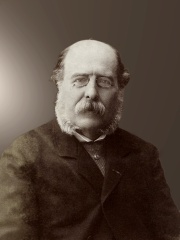历史学家
Philostorgius
368 - 439
Memorability Metrics
Page views of Philostorgius by language
Among 历史学家
Among 历史学家, Philostorgius ranks 133 out of 561. Before him are Peter Martyr d'Anghiera, Arnold Hauser, Paisius of Hilendar, Richard Sennett, Golo Mann, and John Kinnamos. After him are Pierre de Bourdeille, seigneur de Brantôme, Barbara W. Tuchman, Timothy D. Snyder, Ibn Hibban, Heinrich von Treitschke, and William H. McNeill.
Most Popular 历史学家 in Wikipedia
Go to all RankingsPeter Martyr d'Anghiera
1457 - 1526
HPI: 64.55
Rank: 127
Arnold Hauser
1892 - 1978
HPI: 64.54
Rank: 128
Paisius of Hilendar
1722 - 1773
HPI: 64.53
Rank: 129
Richard Sennett
1943 - Present
HPI: 64.45
Rank: 130
Golo Mann
1909 - 1994
HPI: 64.33
Rank: 131
John Kinnamos
1143 - 1185
HPI: 64.30
Rank: 132
Philostorgius
368 - 439
HPI: 64.21
Rank: 133
Pierre de Bourdeille, seigneur de Brantôme
1540 - 1614
HPI: 64.19
Rank: 134
Barbara W. Tuchman
1912 - 1989
HPI: 64.12
Rank: 135
Timothy D. Snyder
1969 - Present
HPI: 64.09
Rank: 136
Ibn Hibban
883 - 965
HPI: 63.98
Rank: 137
Heinrich von Treitschke
1834 - 1896
HPI: 63.96
Rank: 138
William H. McNeill
1917 - 2016
HPI: 63.90
Rank: 139
Contemporaries
Among people born in 368, Philostorgius ranks 3. Before him are Rugila, and Mundzuk. Among people deceased in 439, Philostorgius ranks 2. Before him is Melania the Younger. After him is Isaac of Armenia.
Others Born in 368
Go to all RankingsRugila
POLITICIAN
368 - 434
HPI: 68.39
Rank: 1
Mundzuk
POLITICIAN
368 - 434
HPI: 64.79
Rank: 2
Philostorgius
HISTORIAN
368 - 439
HPI: 64.21
Rank: 3
Others Deceased in 439
Go to all RankingsMelania the Younger
RELIGIOUS FIGURE
383 - 439
HPI: 68.46
Rank: 1
Philostorgius
HISTORIAN
368 - 439
HPI: 64.21
Rank: 2
Isaac of Armenia
RELIGIOUS FIGURE
338 - 439
HPI: 63.62
Rank: 3
In 土耳其
Among people born in 土耳其, Philostorgius ranks 614 out of NaN. Before him are Maximus Planudes (1260), Rusa II (-800), John Kinnamos (1143), Ishpuini of Urartu (-900), Vahide Perçin (1965), and Hugh III of Cyprus (1235). After him are Marcellinus Comes (450), Hanzade Sultan (1609), Barış Manço (1943), Daniel the Stylite (409), Eustathius of Thessalonica (1101), and Theodore Metochites (1270).
Others born in 土耳其
Go to all RankingsMaximus Planudes
PHILOSOPHER
1260 - 1305
HPI: 64.31
Rank: 608
Rusa II
POLITICIAN
800 BC - 639 BC
HPI: 64.30
Rank: 609
John Kinnamos
HISTORIAN
1143 - 1185
HPI: 64.30
Rank: 610
Ishpuini of Urartu
POLITICIAN
900 BC - 810 BC
HPI: 64.29
Rank: 611
Vahide Perçin
ACTOR
1965 - Present
HPI: 64.22
Rank: 612
Hugh III of Cyprus
POLITICIAN
1235 - 1284
HPI: 64.21
Rank: 613
Philostorgius
HISTORIAN
368 - 439
HPI: 64.21
Rank: 614
Marcellinus Comes
WRITER
450 - 534
HPI: 64.21
Rank: 615
Hanzade Sultan
NOBLEMAN
1609 - 1650
HPI: 64.20
Rank: 616
Barış Manço
MUSICIAN
1943 - 1999
HPI: 64.19
Rank: 617
Daniel the Stylite
RELIGIOUS FIGURE
409 - 490
HPI: 64.18
Rank: 618
Eustathius of Thessalonica
WRITER
1101 - 1198
HPI: 64.15
Rank: 619
Theodore Metochites
POLITICIAN
1270 - 1332
HPI: 64.14
Rank: 620
Among 历史学家 In 土耳其
Among 历史学家 born in 土耳其, Philostorgius ranks 16. Before him are Eutropius (320), George Kedrenos (1100), Eunapius (349), Agatharchides (-208), Leo the Deacon (950), and John Kinnamos (1143). After him are Michael Attaleiates (1021), Matthew of Edessa (1100), Doukas (1400), Constantine Lascaris (1434), Halil İnalcık (1916), and Charles Barbier de Meynard (1826).
Eutropius
320 - 400
HPI: 68.75
Rank: 10
George Kedrenos
1100 - 1100
HPI: 66.85
Rank: 11
Eunapius
349 - 420
HPI: 66.64
Rank: 12
Agatharchides
208 BC - Present
HPI: 65.97
Rank: 13
Leo the Deacon
950 - 992
HPI: 65.02
Rank: 14
John Kinnamos
1143 - 1185
HPI: 64.30
Rank: 15
Philostorgius
368 - 439
HPI: 64.21
Rank: 16
Michael Attaleiates
1021 - 1080
HPI: 63.62
Rank: 17
Matthew of Edessa
1100 - 1144
HPI: 63.27
Rank: 18
Doukas
1400 - 1500
HPI: 63.08
Rank: 19
Constantine Lascaris
1434 - 1501
HPI: 60.76
Rank: 20
Halil İnalcık
1916 - 2016
HPI: 59.71
Rank: 21
Charles Barbier de Meynard
1826 - 1908
HPI: 59.03
Rank: 22


